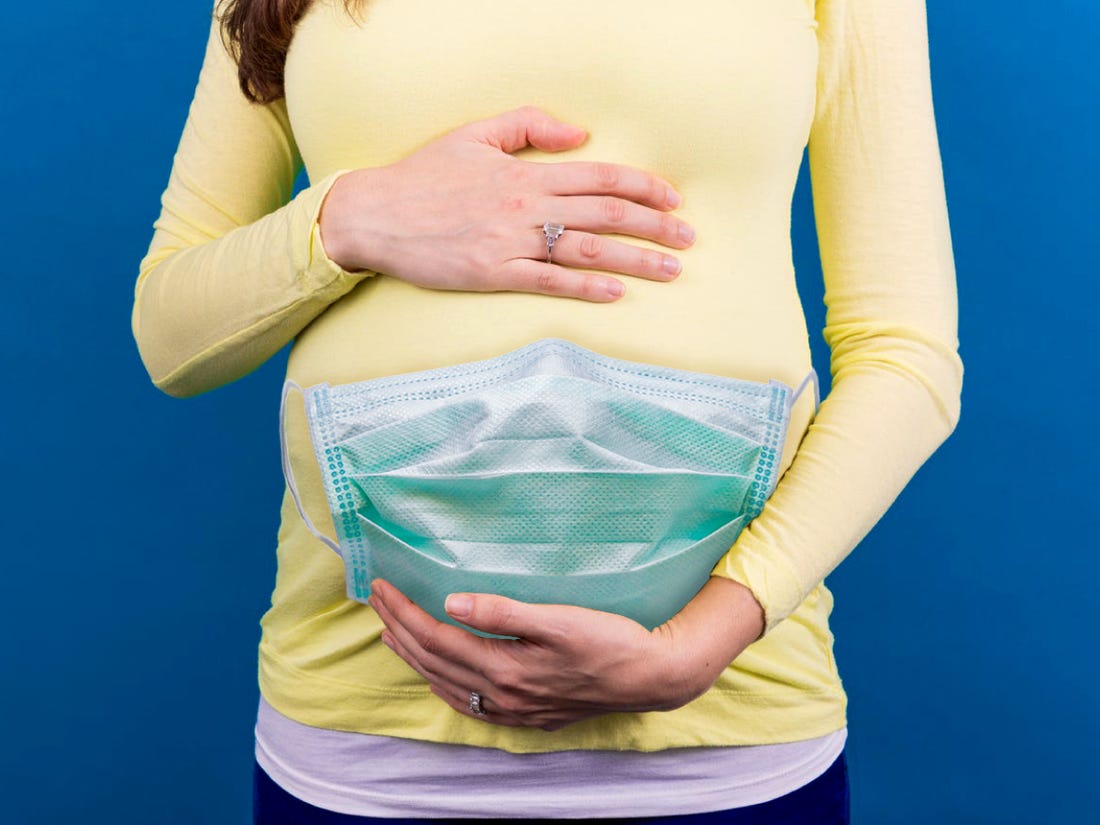All pregnant women should know these things about Coronavirus

Common menopause symptoms and therapy to relieve the symptoms
March 22, 2020
Precautions pregnant women should take during Corona Pandemic
April 1, 2020All pregnant women should know these things about Coronavirus
COVID-19, the outbreak of a new coronavirus, has spread rapidly worldwide. COVID-19 has recently been declared a pandemic by the World Health Organization. Some of our pregnant patients have expressed concerns about the effect of COVID-19 on their health, both for themselves and the babies.
Here in this post, Dr. Sumita Prabhakar, Obstetrics, Gynecologist and IVF specialist at CMI Hospital, Dehradun is answering commonly asked questions about pregnancy and the new coronavirus by analyzed the extremely limited data available to include evidence-based answers below.
Pregnancy and the latest coronavirus As you probably already know, when a person with COVID-19 coughs or sneezes, the virus spreads by respiratory droplets sent out into the air. This can also spread when a person who has the virus contacts a surface contaminated with it.
What would I do to protect myself from getting the latest coronavirus?
The most important strategy is to follow excellent hand hygiene by washing the hands regularly for 20 seconds with soap and water, water bath daily. Do not touch your eyes, ears, and nose. Do walk and breathing exercises (Pranayam) at home to boost lung immunity. You should stop social gatherings, too. Social distancing is necessary in order to reduce the virus ‘ spread. If you have a moderate cough or cold, you should remain at home and limit exposures to others. Sneeze and cough into a tissue you quickly discard or into your elbow to prevent anyone from becoming sick. Hydration and sufficient rest are also crucial for keeping your immune system strong. Keep stress free and positive.
What is my chance as a pregnant woman of getting seriously ill from COVID-19?
Because this is a novel virus, little is documented about how it affects pregnant women. At this point, experts think that pregnant women are as likely to experience symptoms when infected with the latest coronavirus, or even more likely than the general population. Current evidence indicates that symptoms are likely mild to moderate, as is common for non-pregnant women (and men) in this age group.
What are the symptoms of Coronavirus infection in Pregnant Women?
Pregnancy is a high-risk period, all pregnant women should be very careful about their health, coronavirus symptoms for pregnant women are the same as other patients. Fever
tiredness, dry cough. throat, shortness of breath, aches and pains, sore throat, and very few people will report diarrhea, nausea or a runny nose.
Would this raise the risk of miscarriage or any other complications if I am pregnant and have COVID-19?
According to the Centers for Disease Control and Prevention (CDC), USA, there does not appear to be an elevated risk of miscarriage or other complications such as fetal malformations for pregnant women infected with COVID-19. Based on evidence from other coronaviruses such as SARS and MERS, the American College of Obstetricians and Gynecologists notes that expectant mothers who get COVID-19 may have an increased risk for certain complications, such as premature birth, but the details are severely limited and the infection may not be the primary cause of premature birth.
If I get sick from the new coronavirus, what is the chance of the virus being transmitted to my fetus or newborn?
A study of nine pregnant women who have been diagnosed with COVID-19 and have symptoms found that the virus had not affected any of their babies. The virus did not exist in amniotic fluid, the throat of infants, or in breast milk. The risk of transmitting the infection to the fetus currently appears very small, and there is no actual evidence of any fetal malformations or symptoms from COVID-19 maternal infection.
Can COVID-19 positive patient breastfeed their baby?
As per the data available at the Royal College of obstetricians and gynecologist website, There is no evidence of the virus actually present in breast milk. Because the virus is transmitted by respiratory droplets, moms should wash their hands and recommend wearing a face mask to avoid virus exposure to the babies.
What should pregnant women have to do right now?
As a precaution, you must follow government guidelines on the social distance; stay at home for 21 days and after lockdown avoid public places and avoid those with symptoms indicative of coronavirus.
When you are in your third trimester (more than 28 weeks pregnant) you should be especially attentive to social distances and avoid interaction with others.
In addition to that, try to reduce unnecessary visits to the hospital. Add diet with vitamin C and antioxidants to improve immunity. Consult your doctor for any symptoms and avoid self-medication of cough and fever.
What pregnant women supposed to do if they’ve been told to self-isolate?
Pregnant women who have been recommended to self-isolate should remain indoors and avoid contact with others for 7 days. If you live with other people, they should remain at home for at least 14 days to prevent spreading the infection outside the house.
What pregnant women should eat to boost their immunity?
Pregnant women should drink a lot of warm water, green tea, eat Vitamin C rich citrus food like amla, orange, kiwi and add green vegetables in their diet.
Due to the latest coronavirus will I reschedule my baby shower?
Although a baby shower is a joyful and extremely important time, many public health organizations suggest social distancing to reduce the virus spread. The risk of potential exposure and infection is relatively high, no matter large or small gatherings. At this time restrict all big or small or very small social events.
What should I do if I have a fever or cough, have traveled from a country where the virus is common, or have a person reported to have COVID-19 in contact?
Each hospital has specific rules for treating these circumstances in the best way. The first step is to call your doctor and inform them about your symptoms, travel history, or contact someone who has a reported COVID-19 case. You can also dial +91-11-23978046 or 1075 Covid 19 National Helpline Number (India). Limiting virus spread is very essential. Especially if you have symptoms, it is best to call the helpline first to decide your next step.
Reference: Harvard Coronavirus Resource Center, Royal College of obstetricians and gynecologist
Disclaimer: This information is not intended to diagnose or to take the place of medical advice or care you receive from your doctor or other health care professional. If you have persistent health problems, or if you have found any symptoms, please consult with your doctor immediately.




